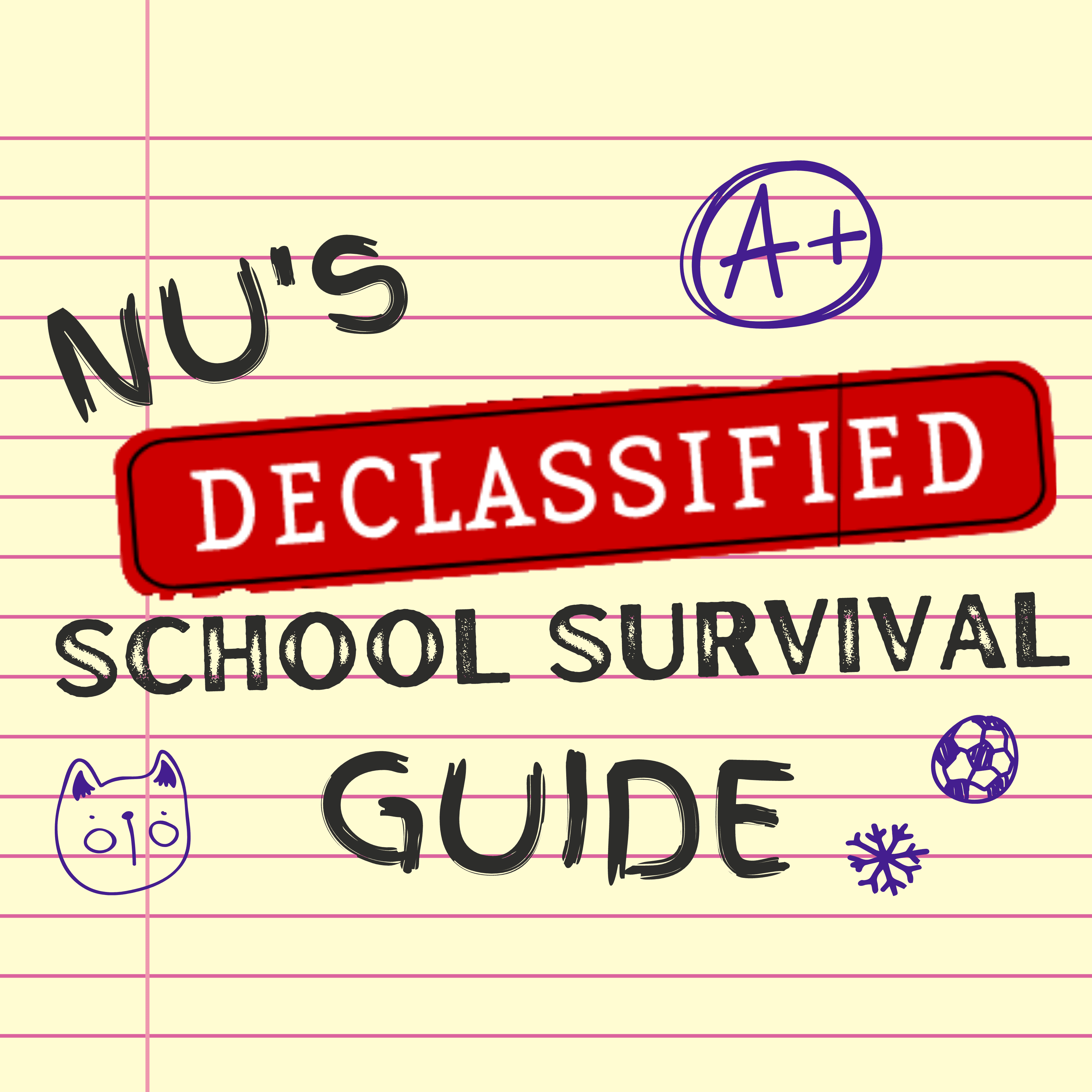View Full Transcript
Episode Transcript
Speaker 0 00:00:00 In the midst of the many ways in which college differs from high school housing, dining friendship, and more, one of the most important transitions is sometimes lost academics. College classes differ from high school classes in many ways, including teaching methods, class length and evaluation methods. Many, if not most first year students struggle to acclimate to the new routine college classes. In the next few minutes, you will hear firsthand accounts from students and a professor on their experiences with, and tips for adapting to college level academics. First, I want to lay out some common difficulties students face when transitioning from high school to college classes,
Speaker 2 00:00:39 I'd say my classes, they utilize a lot of things that I've learned from high school, but they're a lot harder. I have to put a lot more thought into like using the techniques, like learn from each class to like use the problems. It's just a lot more work than high school
Speaker 0 00:00:55 That was Zach I'm McCormick freshman, studying mechanical engineering, Johnny, a Weinberg freshman studying political cell noted similar
Speaker 3 00:01:03 Struggles. I, I feel like that in high school. Um, because like, obviously, you know, you have the same class every day of the week. Um, like the, the, you had more time to cover your material or you were able to, to have more time with like the professor or the teacher, but here, here in college it's, since you're, since you don't have that class every day, you really have to make sure that, that you take advantage of the time as much as possible when you're in the classroom.
Speaker 2 00:01:31 It was a big like learning curve to get into the, I guess, going from high school with like being fine with like an hour or two of studying for a test. Now I need to like five or like eight I hours for a test.
Speaker 0 00:01:44 Both students touched on the difficulty of learning the foundation of their areas of study while in college. In addition to the more advanced concepts while students gained a foundation in math, English, and science and high school topics like engineering and political science are explored much less before college,
Speaker 2 00:02:00 I'd say, especially for my engineering analysis class, it's, it's just a lot more studying because I don't have like a foundation of knowledge already on it. It's just, I'm learning it from the start of the quarter to now
Speaker 3 00:02:13 Everything that, that I learned, I feel like it was, it was my first time looking at it and that it was new. I
Speaker 0 00:02:18 Also spoke with economics professor Janet Chang. She's a fall quarter first year set. And our professor, which means she also acts as the advisor for a group of first year students during their fall quarter. She focused on how students' personal lives can impact their success in their academics. When they first arrive at college during our interview, you
Speaker 4 00:02:36 Have to keep up with the schedule on top of the academic performance and also the social element. It's a lot it's overwhelming these last two years, obviously we have COVID. So everything's aggravated, it's like it's like using a magnifying glass to see how hard it is to transition to a new place in a new life.
Speaker 0 00:02:53 On top of the usual stress of moving to college and starting a new set of classes. A lot of students struggle with a phenomenon called imposter syndrome. Harvard business review defines imposter syndrome as a collection of feelings of inadequacy that persist despite evidence success.
Speaker 2 00:03:09 I definitely did struggle when I first got here because seeing the averages on the midterms and the finals and seeing how they compared to what I got was, uh, uh, it was, it was a big difference.
Speaker 0 00:03:20 Johnny talked to me about how being a first generation, low income or FG I student, and a person of color plays into the imposter syndrome. He experiences.
Speaker 3 00:03:29 There's like lots of things that make it in people's heads, whether you went to like a large public school, or whether you're your first generation, whether you're low income, whether you're people of color. And that also plays into like, maybe you feeling like you have imposter syndrome. Something that I experienced is, is definitely being, being intimidated. Um, when you arrive on campus, because obviously you notice like the, like the social economical status of your peers or, or you notice, um, how much of a minority you are at times. And, and sometimes you may, you may feel alone and sometimes you may feel like you don't belong
Speaker 0 00:04:13 Northwestern classes. Aren't all bad though. My interviewees had plenty of advice for incoming first year students for how to do well in college classes.
Speaker 3 00:04:22 A lot of the time professors, they put up their slides or, or things like that before class. So like, if you can go review the, like review the slides before, before class, and even if you can take notes on the slides beforehand, that way, when you're in class, you can actually pay a lot more attention. So what the professor is saying,
Speaker 4 00:04:42 The best attitude toward solving a problem is always to go to the professor, ask for help, ask questions. Um, don't be afraid of asking anything that you are not clear about. Don't assume things then just jump on that. I think that's, that's usually, um, the mistake I, I see, I see, I assume because they feel like you're, I should know about everything before I ask professor, but that's not the case. You are free to ask any questions.
Speaker 0 00:05:07 One strategy Zach and Johnny used to study is to supplement their learning with outside resources.
Speaker 2 00:05:13 I've been watching a lot of YouTube videos on the topics that I'm learning as I'm doing my homework so I can learn and then apply the concepts that I'm learned to my
Speaker 3 00:05:22 Homework. I have been to a couple of drop in tutoring sessions provided by asthma. I actually thought that they were really helpful. Uh, the, the people that are there, uh, because they're they're students, uh, you, you kind of feel more, more confident.
Speaker 0 00:05:37 Johnny also had some helpful advice for overcoming imposter syndrome.
Speaker 3 00:05:41 So I tried to, uh, think of like, what is the reason that, that I'm here in, in the first place. And, and I give myself that confidence and then I'm ready to go about my day, a lot better
Speaker 0 00:05:50 Specifically addressing FG I students and students of color. He said,
Speaker 3 00:05:54 Have confidence in yourself to go out there. Um, just remember to always be yourself. Don't ever feel like you have to change for anyone else. Be true to, to who you are, be proud of your background of your history and, and just go out there and take and take advantage of all your resources.
Speaker 0 00:06:15 Starting college is a huge adjustment for all students, including the transition to long, less frequent and large lecture-based college classes. Hopefully you gained some helpful tips from this segment on how to succeed in your classes. As our guest advised, remember to supplement course material with YouTube videos and other online materials review class nodes before lectures reach it. Professors, as professor Chang said, they're here to help take advantage of university resources like drop in tutoring and the writing place and stay confident and true to yourself. College classes can be overwhelming, but they can also be incredibly rewarding. Use the strategies that are best for you and your transition will be smoother and more successful. Best of luck to all, all members of the class of 20, 26 beginning their college classes in the fall for w news I'm.





